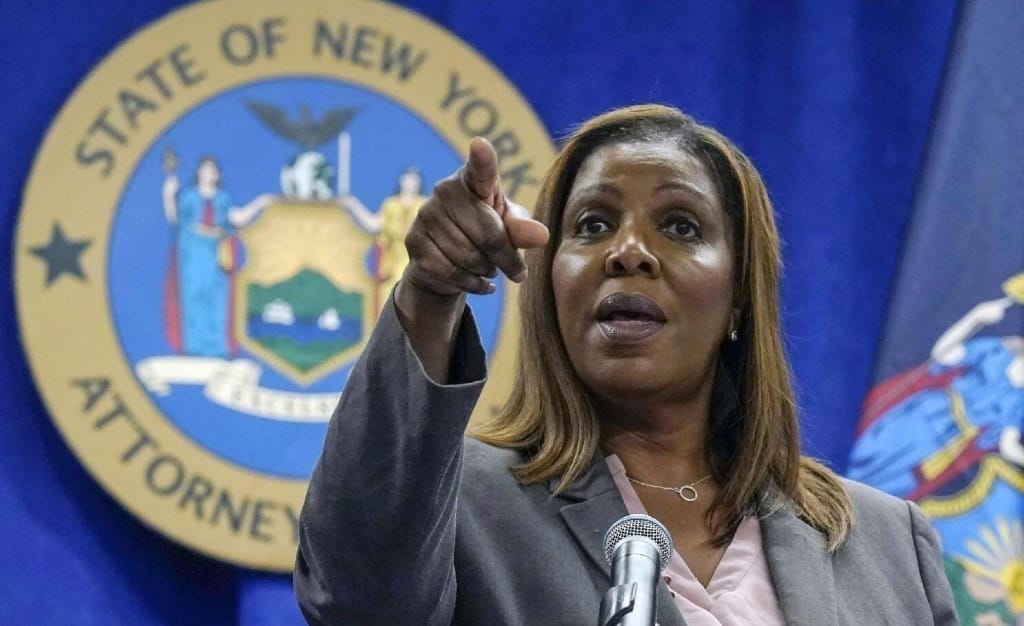Supreme Court Refuses to Disturb N.Y. Low-Income Broadband Rate Law
The state is set to begin enforcing the law in 30 days.
Jake Neenan

WASHINGTON, Dec. 16, 2024 – The Supreme Court declined Monday to weigh in on a New York law mandating affordable broadband prices for low-income customers.
Other states haven’t instituted similar laws, but the industry groups challenging the law told justices they feared other states would follow New York’s lead if the law were allowed to stand.
New York Attorney General Letitia James had struck a deal with ISPs and agreed not to enforce the law while justices considered whether or not to take the case. With their petition denied, James can begin bringing penalties under the law in 30 days.
The Roberts Court, which has six Republican appointees and is generally seen as pro-business, wasn’t able to marshal four justices in favor of hearing the appeal.
“Today’s decision leaves in place harmful rate regulations that will undermine the effective delivery of broadband services and discourage investment in broadband networks, particularly in unserved and underserved areas,” the state and national trade groups challenging the case said in a statement. “We will continue to advocate for policies that support and sustain broadband access and protect the competitive marketplace that benefits all Americans.”
Some of the same groups – like USTelecom and CTIA – are also asking the Sixth Circuit to uphold broadband’s status as a less-regulated Title I service – the same legal framework under which the New York law was upheld.
The state’s Affordable Broadband Act requires ISPs to offer monthly rates of no more than $20 for download speeds at least 200 megabits per second, or $15 for 15 Mbps, for low-income subscribers.
The high court denied ISPs’ request to hear the case without elaborating.
“The Second Circuit got it right, consistently with other courts, so it’s not surprising the Supreme Court did not see the need to intervene,” John Bergmayer, legal director at advocacy group Public Knowledge, said in an email. “This is good for state efforts around broadband affordability and internet openness.”
Charter and Altice already offer ABA-compliant plans in New York as part of merger conditions, and Verizon offers a similar plan that would be available to more customers under the law.
The three ISPs cover about 95 percent of New York households, according to the state. Smaller providers were tentatively exempted from the law by New York’s Public Service Commission, and some price increases are allowed every.
The Second Circuit Court of Appeals upheld the law’s legality in April. Judges held that broadband being a Title I service under the Communications Act prevented the Federal Communications Commission from regulating prices, but left states open to do so if they wished.
The day before that decision came down, the agency had moved to reinstate net neutrality rules and make broadband a Title II service, which would allow the agency to regulate pricing, a power the FCC refused to take up in its order. Those rules are being challenged in the Sixth Circuit by industry groups, including some of those challenging the ABA.
Experts thought the Title II designation would make it easier for ISPs to argue the New York law was superseded by the Communications Act – although the Democratic FCC said in its order that a “state affordability program” would not on its face be preempted. Brendan Carr, the incoming chairman, had argued at the time for declaring the ABA preempted.
In any case, it wasn’t worth the extra oversight for providers. They had asked the Supreme Court to take up the ABA case only after the Sixth Circuit “confirms the Title I classification of broadband,” or after the justices themselves weighed in after an appeal.
Oral arguments in the net neutrality case happened on Oct. 31. The court hasn’t issued a ruling. Carr strongly opposed the order and is expected to roll it back or not enforce it.
James’s office did not immediately respond to a request for comment.









Member discussion